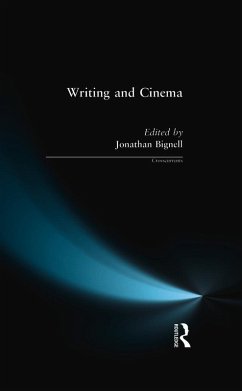
Writing Jazz (eBook, PDF)
Race, Nationalism, and Modern Culture in the 1920s
Redaktion: Nadelhaft, Jerome
Versandkostenfrei!
Sofort per Download lieferbar
48,95 €
inkl. MwSt.
Weitere Ausgaben:

PAYBACK Punkte
24 °P sammeln!
This study examines how early writers of jazz criticism (such as Gilbert Seldes and Carl Van Vechten) and literature (F. Scott Fitzgerald and Langston Hughes)--as well as jazz performers and composers (such as Al Jolson, Sophie Tucker, and George Gershwin)--associated the music directly with questions about identity (racial, ethnic, national, gendered, and sexual) and with historical developments like industrialization. Going beyond the study of melody, harmony, and rhythm, this book's interdisciplinary approach takes seriously the cultural beliefs about jazz that inspired interracial contact,...
This study examines how early writers of jazz criticism (such as Gilbert Seldes and Carl Van Vechten) and literature (F. Scott Fitzgerald and Langston Hughes)--as well as jazz performers and composers (such as Al Jolson, Sophie Tucker, and George Gershwin)--associated the music directly with questions about identity (racial, ethnic, national, gendered, and sexual) and with historical developments like industrialization. Going beyond the study of melody, harmony, and rhythm, this book's interdisciplinary approach takes seriously the cultural beliefs about jazz that inspired interracial contact, moralistic panic, bohemian slumming, visions of American democracy, and much more. Detailed textual analysis of fiction, nonfiction, film, and musical performance illustrates the complexity of these cultural beliefs in the 1920s and also shows their survival to the present day. In part, jazz absorbed the U.S. cultural imagination due to the nineteenth-century artistic search for music that would define the national character. To the chagrin of Anglo-Saxon nativists, jazz ascended as an exemplar of cultural hybridity and pluralism. The writers and entertainers studied in this volume--most of whom were minorities of Jewish Irish or African heritage--hailed the new social possibilities that they heard and felt in jazz. Yet most of them also qualified their enthusiasm by remaining wary of both the seductions of jazz's commercialization and the loss of ethnic identity in the melting pot.
Dieser Download kann aus rechtlichen Gründen nur mit Rechnungsadresse in A, B, BG, CY, CZ, D, DK, EW, E, FIN, F, GR, HR, H, IRL, I, LT, L, LR, M, NL, PL, P, R, S, SLO, SK ausgeliefert werden.













